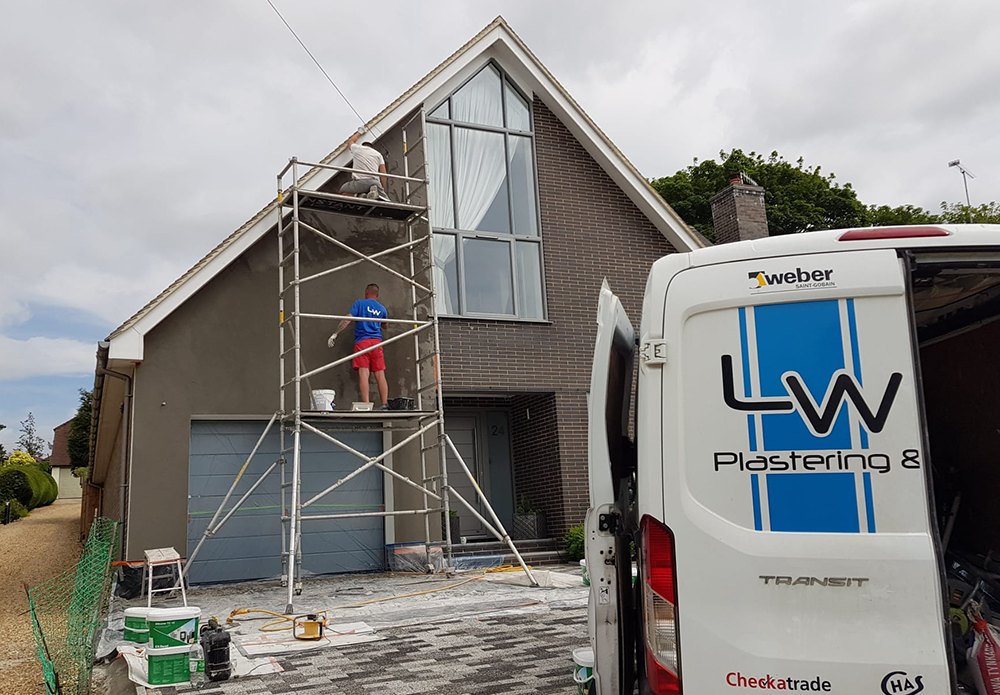External wall insulation is an effective method of improving the efficiency and comfort of a building. It involves the application of a layer of insulating material to the exterior walls of a building in order to reduce the amount of heat lost through the walls. The insulation helps to reduce heating and cooling costs, improve the comfort of the occupants and reduce the environmental impact of the building. The main benefit of external wall insulation is that it can reduce the amount of energy required to heat and cool a building. This is because the insulation acts as a barrier, trapping the heat inside the building and preventing it from escaping. This can result in significant savings on energy bills as the amount of energy required to heat and cool the building is reduced. As well as saving on energy costs, external wall insulation can also help to reduce noise pollution from outside the building, as the insulation acts as a sound barrier. In addition to energy savings, external wall insulation can also improve the comfort of the occupants of the building.
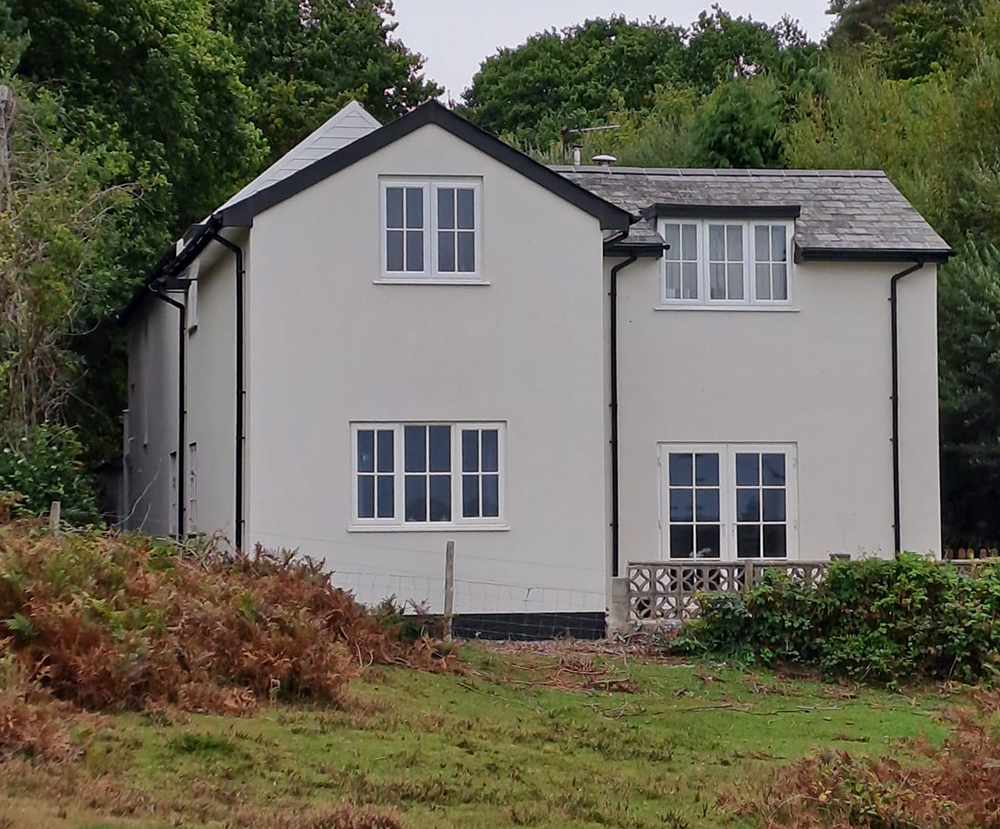
This is because the insulation helps to regulate the temperature inside the building, meaning that it is kept at a comfortable level throughout the year. This can make the building a much more pleasant place to live or work in, as the temperature is maintained at a comfortable level. External wall insulation can also help to reduce the environmental impact of a building. This is because it helps to reduce the amount of energy required to heat and cool the building, meaning that less energy is being consumed. This can help to reduce the carbon footprint of the building, as less energy is being used and therefore fewer emissions are being produced. Finally, external wall insulation can also help to protect the building from the elements. The insulation acts as a barrier, providing protection from rain and cold temperatures. This can help to extend the life of the building, as it is better protected from damage caused by the weather. In conclusion, external wall insulation can be an effective way of improving the efficiency and comfort of a building. It can help to reduce energy costs, improve the comfort of the occupants, reduce environmental impact and protect the building from the elements. Therefore, external wall insulation is an effective and cost-effective way of improving the performance of a building.
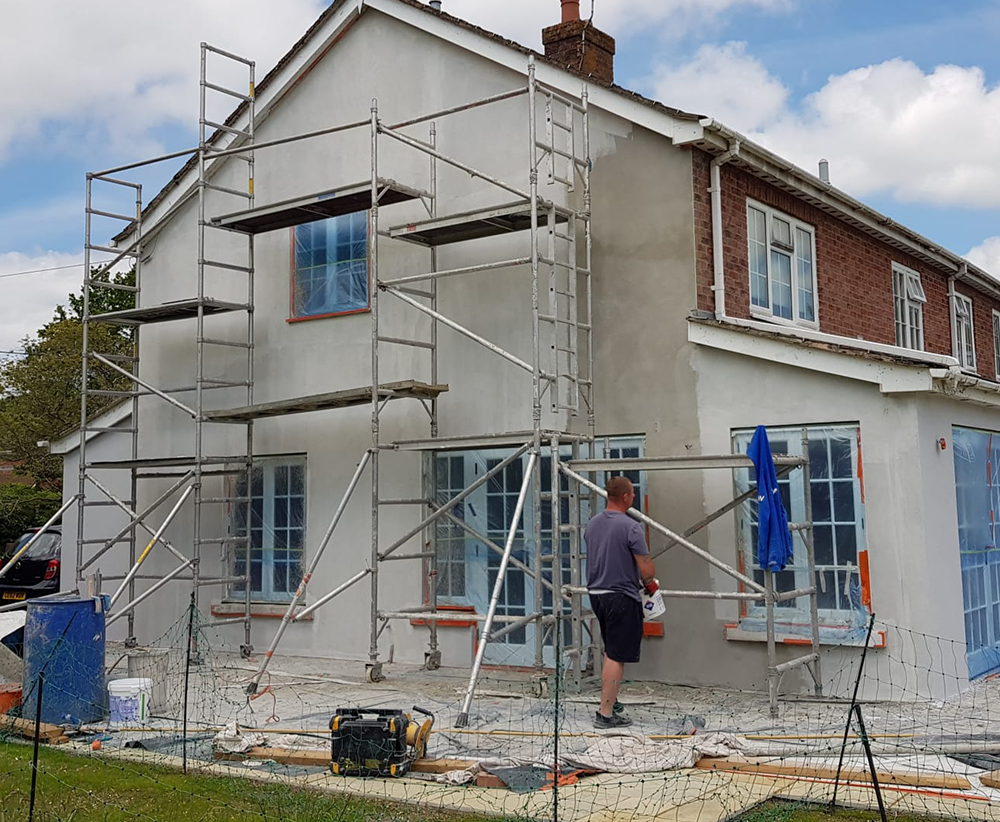
External wall insulation is one of the most effective ways of increasing the thermal efficiency of a building, reducing both energy consumption and emissions.
By adding insulation to the outside of a building you can drastically reduce the amount of heat lost through the walls, thus improving the energy efficiency of the building and ultimately reducing energy bills.
In addition to this there are a range of other benefits associated with external wall insulation systems.
Improved Comfort Levels
Adding insulation to the outside of a building will dramatically improve the comfort level of the building.
Insulation acts as a barrier between the warmth of the interior and the cold of the outer atmosphere.
This will result in rooms staying warmer for longer, and lower the need to rely on more expensive methods such as radiators or fireplaces in order to heat the home, which can be inefficient and costly in the long run.
Furthermore, by reducing air leakage into the home, it helps to reduce the amount of dust, pollen and other allergens entering the building and creating a more comfortable living space.
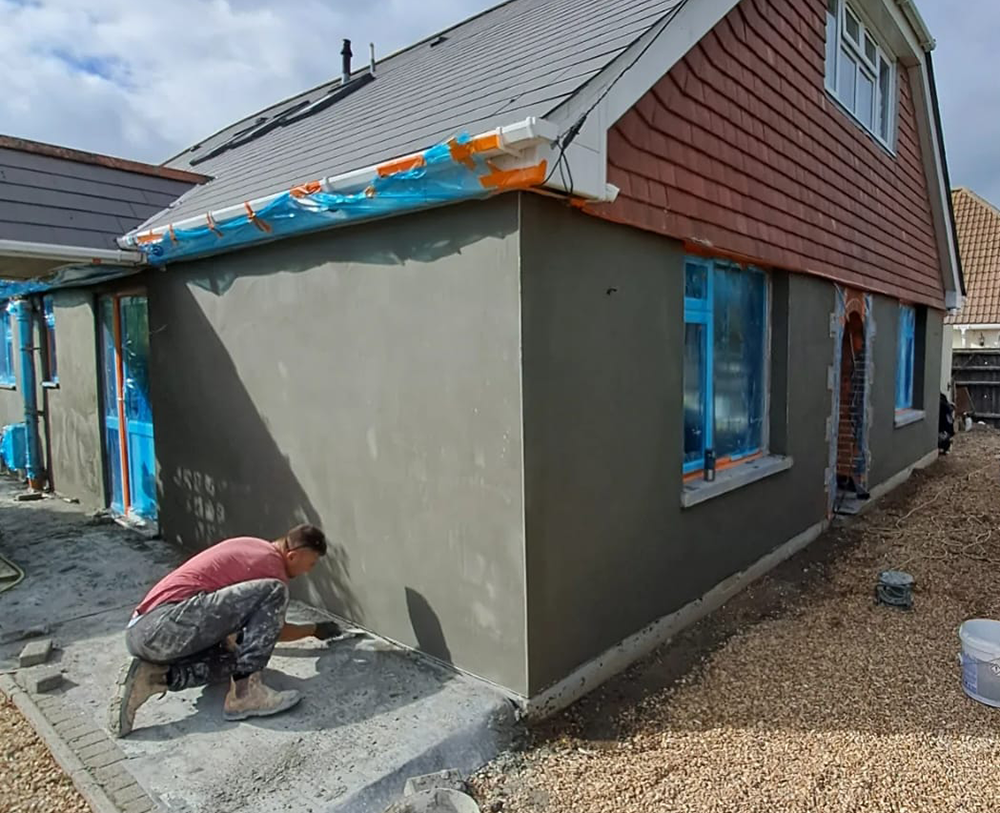
Reduced Condensation and Mould Levels
Adding insulation to the external walls of a building helps to reduce the likelihood of condensation and the growth of mould due to the improved thermal efficiency.
During winter months, cold air that enters the building via the exterior walls causes the air temperature to drop and increases the risk of condensation and mould.
By reducing the air leakage into the building and improving the thermal efficiency, this risk is reduced.
Better Sound Insulation
External wall insulation can provide better sound insulation as it reduces the noise from the outside and increases the sound insulation from people living in a neighbouring property or from main roads or train noise.
As well as improved sound proofing, the insulation will also reduce draughts, making the home more comfortable.
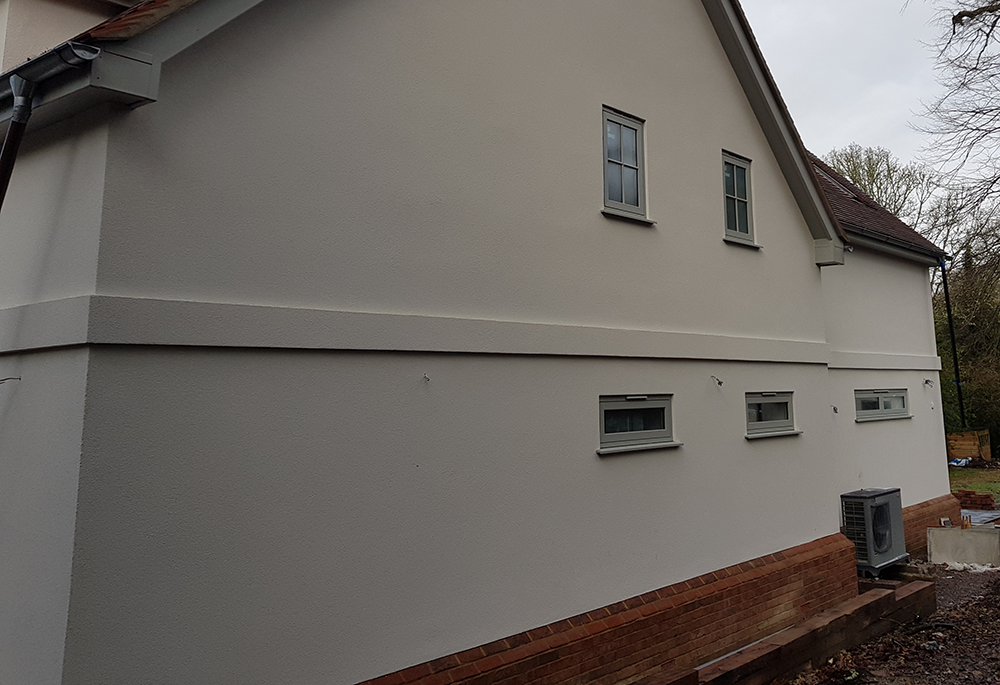
Long Lasting and Low Maintenance
External wall insulation systems are generally low maintenance and long lasting, requiring little more than occasional cleaning.
This makes them a cost effective way of improving the properties energy efficiency and comfort over the long term.
Thermally Upgrading Older Buildings
Insulation is a great way to increase the energy efficiency of older buildings, which were typically constructed with little or no insulation.
Buildings that have been insulated externally are often more thermally efficient than those that haven't and require far less energy input to maintain a comfortable living temperature.
In conclusion, external wall insulation systems can provide a range of benefits including improved comfort, reduced condensation and mould levels, better sound insulation, low maintenance, and improved thermal efficiency of older buildings.
All of this can result in reduced energy bills and increased comfort within the home, making it an attractive option for any property owner looking to become more energy efficient.
